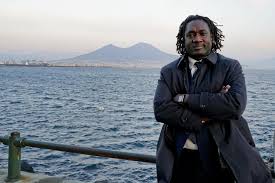Italy: Far-right government submits plan to decriminalise abuse of office

Rome: Italian senators are to debate plans by the far-right government to decriminalise abuse of office, a decision that has sparked tension with the EU and raised fears over the potential for mafia infiltration in the public sector.
Punishable by up to four years in prison, the charge of abuse of office can be brought against public officials, including mayors and local administrators, who are suspected of intentionally exploiting their public position for their own or someone else’s benefit.
According to Carlo Nordio, the justice minister, the crime is too vague and discourages local politicians and civil servants from signing off on projects due to fears they will end up under investigation, thus causing “economic damage that affects citizens”.
But in a country where the mafia has often infiltrated the public sector, magistrates have raised concerns about the essential role the charge plays in the safeguarding of public administration. Abolishing it, they warn, could simply facilitate white-collar and economic crimes and deepen the links between politics and organised crime.
Giuseppe Inzerillo, a lawyer from Palermo and an expert in criminal law, said: “Certainly the abolishment of this law could lead to a greater risk of mafia infiltration in the public sector. Being certain not to run into the crime of office abuse, a mayor who has to carry out a public work could assign the construction to a relative, a friend and – why not? – to a mafioso friend.”
The proposal has also raised concern in Brussels, where a spokesperson for the European Commission said last month that it “decriminalises an important form of corruption and may have an impact on the effectiveness of the fight against corruption”. The crime of abuse of office exists in 25 out of 27 EU countries, and Brussels would like to see it extended to all.
In Italy, however, the issue is highly complex and divides academics, lawyers and legal experts. Critics from the left and right point out that its effectiveness in Italy in bringing cases to trial is very low. According to data from the ministry of justice, 96% of abuse of office proceedings end with the closure of investigations against the accused.
Inzerillo, who has dealt with dozens of cases of this specific crime, acknowledged the drawbacks. “Very often, the causes that trigger the opening of an investigation against a public official for the crime of office abuse in Italy are of a political nature, and this happens especially in small towns,” he said.
“Let me give you an example. If a mayor has to announce a tender for the construction of a sewer, he could receive the most advantageous offer from an acquaintance, which is very common in small towns. At that point, the opposition party in the city could report to the authorities that the mayor wanted to favour his acquaintance by awarding the sewer construction to his company. The result is that today in Italy, many mayors and public officials, in order to avoid being charged with office abuse, are actually inclined to abandon the implementation of public works.”
Similar criticisms are cited by Giorgia Meloni’s government. Nordio has said the abuse of office crime “obstructs investigations because it clogs up public prosecutor’s offices with useless files, using up energy that should instead be directed towards offences requiring greater attention”.
However, the scale of Italy’s ongoing battle against organised crime gives many others pause for thought. Last November, a court convicted and sentenced more than 200 people of crimes including criminal association, extortion and bribery in what was described as Italy’s largest mafia trial in three decades.
Investigators provided extensive evidence of the ruthless and oppressive tactics employed by the ’Ndrangheta in Calabria to control the local community, including violent attacks, extortion and corruption in public contracts. Abuse of office was among the crimes of which officials and civil servants were convicted.
The Italian government’s proposal will be examined on Tuesday in the senate, Italy’s upper house of parliament. Senators could vote on the bill as early as Wednesday.





